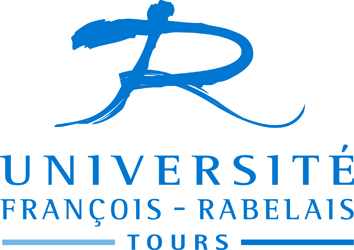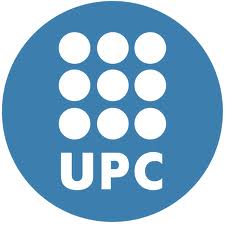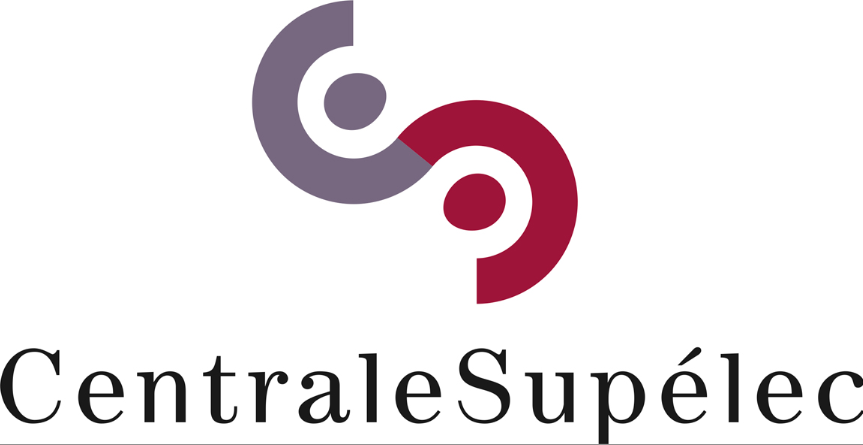Home >> Master Programme >> Degree, Accreditation and Grading
Degree, Accreditation and Grading
Degree Awarded and Accreditation
The programme relies on nationally recognised degrees included in each HEI catalogue, namely:
- ULB: Master of Science in Computer science and engineering
- UFRT: Master Sciences et technologies, mention Informatique, spécialité Systèmes d'information pour l'aide à la décision
- UPC: Erasmus Mundus Master in Information Technologies for Business Intelligence
- ECP: Master Sciences de l'ingénieur, mention Mathematiques appliquées et sciences de l'information, spécialité Ingénierie des connaissances
- TUB: Master of Science in Informatik
Students enroll for the first semester at ULB and the second at UFRT. They choose in the third semester a specialization at one of the three other institutions (UPC, ECP, or TUB). Finally, in the fourth semester they carry out the master's Thesis at any of the partner institutions (whether full or associated). Upon completion, they are awarded a multiple degree (ULB, UFRT, and the university of the specialization).
Grading
Joint examination will rely partly on mutual recognition of the quality of the partners. Thus, the consortium will incorporate the features of existing courses and local regulations will apply for student's evaluation and student-teacher conflict resolution. Nevertheless, an effort has been made to establish a procedure as uniform as possible for examination and assessment of student's achievements:
Regarding the courses,
- During the first and second semesters, for delivering fundamentals, all students are together in the same institution, and therefore no coordination or harmonization for the evaluation results is necessary. Nevertheless, the contents and objectives of these courses have been coordinated with those in the other institutions.
- A dedicated joint examination method will be organized for the course implemented jointly at UFRT.
- In case of failure of a module, a resit session will be organized for the student not before 2 weeks of the previous examination.
- Local marking will be used throughout the student tracking. Conversion to ECTS will be done subsequently using local conversion rule
- At the end of each semester, the list of courses validated by each student will be drawn up with a mark and the number of ECTS credits associated with each.
- At the end of each year, the StrCo reviews and discusses the student's results, and, at the end of year 2, harmonises the marks and distributes the ECTS credits. Our starting point for equivalencies across grading scales is given in Table 5, and this will be reviewed regularly to ensure similar grades from different partners truly reflect similar underlying student behaviour.
- To obtain the master's degree, it is necessary to obtain 90 ECTS from courses, plus 30 ECTS from the master's Thesis.
- Upon completion of the programme, student's grades will be issued in the ECTS grading scheme.
Equivalence between grades across countries. ECTS Definition US BE, FR ES DE A Excellent: outstanding performance
with only minor errorsA [18-20] [9.5-10] [1.0-1.3] B Very Good: above the average standard
but with some errorsB+ [16-18[ [8.5-9.5[ [1.7-2.0] C Good: generally sound work
with a number of notable errorsB [14-16[ [7-8.5[ [2.3-2.7] D Satisfactory: fair but with
significant shortcomingsC+ [12-14[ [6-7[ [3.0-3.3] E Sufficient: performance meets
the minimum criteriaC [10-12[ [5-6[ [3.7-4.0] F Fail: considerable further work
is requiredF [0-10[ [0-5[ 5.0
Regarding the Master Thesis:
- It will be written in English and defended during the annual workshop
- The thesis defence lasts for 60 minutes, including questions.
- Three lecturers from universities different from the one in which the student did his work experience will mark the dissertation beforehand.
- The juries will be composed of one member from each partner, one associate academic partner, and one associate industrial partner.
- The marks from the oral presentation and written evaluation are then averaged out to give a general mark.
- Grade harmonization will be performed if defences are organized as parallel sessions.
- Should a student fail, a resit session is organized locally in September which requires a new version of the dissertation (which will be evaluated by the same lecturers) and a new oral presentation broadcasted through video-conference to the other institutions.
Both the admission/selection and the student examination procedures have been thought of having in mind their transparency, fairness, and objectivity. With respect to transparency, all documents will be kept open to inspection, and students will receive a detailed feedback on their own evaluation and distance from expected performance. No distinction will be made regarding any aspect of the student's personality and previous career, which are not explicitly listed among the evaluation/examination criteria. All the criteria can be quantified, allowing a fair and objective assessment.
While the selection procedure is designed to ensure all students will have the necessary prerequisites for the programme, the consortium recognizes the difficulties in evaluating students with diverse backgrounds and all partners have been dealing with international students for many years. The extensive participation of teachers to all the decision-making processes guarantees a mediated agreement, leaving no room to any prevailing personal opinion. Nevertheless, the consortium is aware that some discrepancy between the intended effects and the actual ones might arise. For this reason, an accurate ex-post evaluation of the described procedures will be carried out once they have been applied in practice, and any failure that should emerge will be discussed in depth and corrective actions (including modifications in grading procedures and adjustment of course weightings) will be proposed. The way in which the Master is organized also takes into account lifelong learning and permanent education.
Persons who desire to improve their professional situation could apply for the Master as a whole or register to specific topics.
At the end of the two years, a grade transcript will be drawn up for each student. It will include the official seal of all the partner institutions, thus guaranteeing recognition of the credits obtained. Once 120 ECTS credits have been obtained, the student will receive the multiple national masters diplomas from the universities in which he/she studied, a joint diploma (if the student took specializations either at UPC or ECP) and a joint Europass Diploma Supplement and Europass mobility. The Europass language certificate will be used to record the student's language skills (the coordinator will be responsible for the delivery of these documents), and students will be encouraged to use the Europass CV.
All the HEI in the consortium will recognize the results. Obtaining these Master degrees will allow students to enroll in doctoral studies in the HEI of their choice.
News
- student achievement
One of our former student, Maximiliano Lopez, participated to a challenge organized by United Nations and the U.S. Department of State. And guess what? He won the second place for his project! This page describes what the challenge was about: … Continue reading
- IT4BI becomes BDMA!
After 5 successful editions, IT4BI becomes BDMA! The Erasmus Mundus Joint Master Degree IT4BI has successfully welcomed five generations of students since its opening in September 2012. To better align with the new needs of research, education, and industry with … Continue reading
- What’s new for IT4BI
The Erasmus Mundus Joint Master Degree IT4BI has successfully welcomed four generations of students since its opening in September 2012. On September 2016, IT4BI will graduate its third generation and welcome its fifth one. IT4BI is funded for five editions … Continue reading
- Applications for self-funded students are now open!
Students applying as self-funded (fee-paying) candidates can submit their applications until April 30th, 2016 or June 30th, 2016 depending on the nationality. More information on the admission page.
- IT4BI Ambassadors page is now available
Thanks to our Ambassador’s programme, all students interested in the IT4BI programm can now get a first-hand account of the IT4BI experience from a former or current IT4BI student. To contact the IT4BI Ambassador of your choice, please refer the … Continue reading
Shortcut to
The IT4BI FAQ
The IT4BI Flyer
The IT4BI Poster
The IT4BI Course Description
The IT4BI Programme Structure
The IT4BI Student Guide







